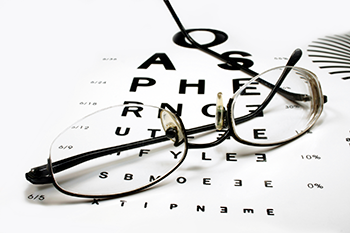 We’ve all heard that carrots are good for your eyes. But is that true, or just a way to get kids to eat more veggies? In a recent publication, the FDA discussed several common perceptions related to eye health and vision in an attempt to separate fact from fiction.
We’ve all heard that carrots are good for your eyes. But is that true, or just a way to get kids to eat more veggies? In a recent publication, the FDA discussed several common perceptions related to eye health and vision in an attempt to separate fact from fiction.
We have included many of the topics discussed by the FDA below so you can test your knowledge below. We’ll start with Carrots. So is eating lots of carrots is good for your vision?
It turns out that it is a Fact. According to the FDA, “Carrots are a good food for healthy eyesight because they contain carotenoids, which are precursors of vitamin A, a nutrient important to your eyes.”
“However, a well-balanced diet can contain lots of foods that offer similar benefits, such as other darkly colored fruits and vegetables like peas and broccoli. Eating a well-balanced diet also helps you maintain a healthy weight, which makes you less likely to develop obesity-related diseases such as Type 2 diabetes, the leading cause of blindness in adults.”
What about sitting too close to movie, television, and computer screens? Is that really bad for your eyes?
Not true says the FDA report. “According to the American Academy of Ophthalmology (AAO), watching televisions, including flat screens, can’t cause your eyes any physical harm. The same is true for using the computer too much or watching 3-D movies. AAO says your eyes may feel more tired if you sit too close to the TV or spend a lot of time working at the computer, but you can fix that by giving your eyes a rest.”
Are laser pointers truly dangerous with the ability to cause permanent eye damage?
Yes they are says the FDA – it’s a fact. According to Dan Hewett, health promotion officer at FDA’s Center for Devices and Radiological Health, “A beam shone directly into a person’s eye can injure it in an instant, especially if the laser is a powerful one.” In fact, when operated unsafely, or without certain controls, the highly-concentrated light from lasers—even those in toys—can be dangerous, causing serious eye injuries and even blindness. And not just to the person using a laser, but to anyone within range of the laser beam.
More information related to this topic is available online from the FDA at their web site: http://www.fda.gov.
![Herbal Reference Substances are Key to Everyday Products <!-- AddThis Sharing Buttons above -->
<div class="addthis_toolbox addthis_default_style " addthis:url='http://newstaar.com/herbal-reference-substances-are-key-to-everyday-products/3512112/' >
<a class="addthis_button_facebook_like" fb:like:layout="button_count"></a>
<a class="addthis_button_tweet"></a>
<a class="addthis_button_pinterest_pinit"></a>
<a class="addthis_counter addthis_pill_style"></a>
</div>When it comes to quality control testing and the development of new products, Botanical Reference Materials (BRMs), also known as Herbal References are critically important. To help companies ultimately obtain all-important FDA approval, the Food and Drug Administration provides in its guidance a recommendation that […]<!-- AddThis Sharing Buttons below -->
<div class="addthis_toolbox addthis_default_style addthis_32x32_style" addthis:url='http://newstaar.com/herbal-reference-substances-are-key-to-everyday-products/3512112/' >
<a class="addthis_button_preferred_1"></a>
<a class="addthis_button_preferred_2"></a>
<a class="addthis_button_preferred_3"></a>
<a class="addthis_button_preferred_4"></a>
<a class="addthis_button_compact"></a>
<a class="addthis_counter addthis_bubble_style"></a>
</div>](http://newstaar.com/wp-content/uploads/2021/02/Achillea_millefolium_flowers-100x100.jpg)
![Quality Electrochemical Biosensors are Critical for Medical, Food and Chemical Industry <!-- AddThis Sharing Buttons above -->
<div class="addthis_toolbox addthis_default_style " addthis:url='http://newstaar.com/quality-electrochemical-biosensors-are-critical-for-medical-food-and-chemical-industry/3512086/' >
<a class="addthis_button_facebook_like" fb:like:layout="button_count"></a>
<a class="addthis_button_tweet"></a>
<a class="addthis_button_pinterest_pinit"></a>
<a class="addthis_counter addthis_pill_style"></a>
</div>A number of industries have, at their core, a need to frequent or even continuous analysis of biological media. These include the medical and pharmaceutical fields, biotech firms, and food and chemical companies. To maintain quality standards and develop new products, these industries rely heavily […]<!-- AddThis Sharing Buttons below -->
<div class="addthis_toolbox addthis_default_style addthis_32x32_style" addthis:url='http://newstaar.com/quality-electrochemical-biosensors-are-critical-for-medical-food-and-chemical-industry/3512086/' >
<a class="addthis_button_preferred_1"></a>
<a class="addthis_button_preferred_2"></a>
<a class="addthis_button_preferred_3"></a>
<a class="addthis_button_preferred_4"></a>
<a class="addthis_button_compact"></a>
<a class="addthis_counter addthis_bubble_style"></a>
</div>](http://newstaar.com/wp-content/uploads/2020/10/Electrochemical-Biosensor-100x100.jpg)
![Company Develops Industrial Mixers Well-Suited for both Fragile and Explosive Products <!-- AddThis Sharing Buttons above -->
<div class="addthis_toolbox addthis_default_style " addthis:url='http://newstaar.com/company-develops-industrial-mixers-well-suited-for-both-fragile-and-explosive-products/3512071/' >
<a class="addthis_button_facebook_like" fb:like:layout="button_count"></a>
<a class="addthis_button_tweet"></a>
<a class="addthis_button_pinterest_pinit"></a>
<a class="addthis_counter addthis_pill_style"></a>
</div>Industrial drum mixers are normally applied to blend mixes of varying viscosities such as adhesive slurries or cement. Some of these mixers have the capability of blending mixes of very different particle sizes such as fruit and ice cream, and gravel and cement slurry. The […]<!-- AddThis Sharing Buttons below -->
<div class="addthis_toolbox addthis_default_style addthis_32x32_style" addthis:url='http://newstaar.com/company-develops-industrial-mixers-well-suited-for-both-fragile-and-explosive-products/3512071/' >
<a class="addthis_button_preferred_1"></a>
<a class="addthis_button_preferred_2"></a>
<a class="addthis_button_preferred_3"></a>
<a class="addthis_button_preferred_4"></a>
<a class="addthis_button_compact"></a>
<a class="addthis_counter addthis_bubble_style"></a>
</div>](http://newstaar.com/wp-content/uploads/2020/06/bandeau-sofragir2-100x100.jpg)